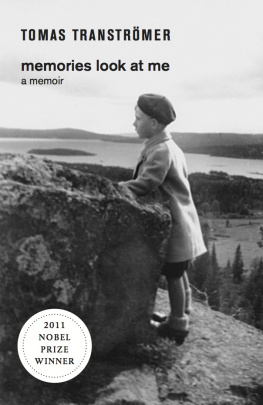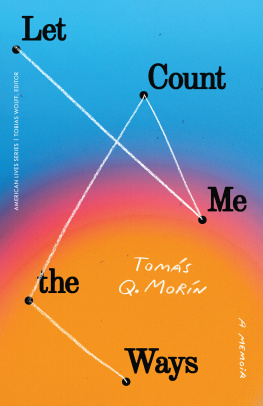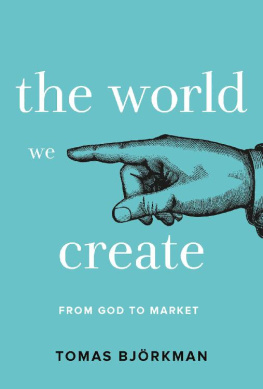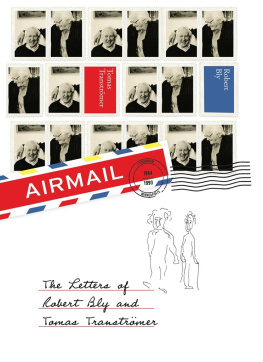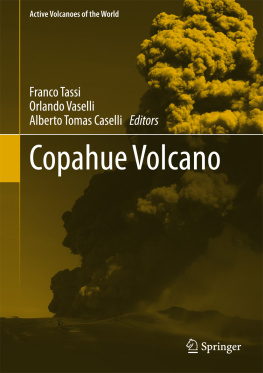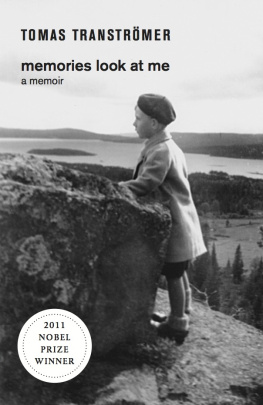MEMORIES
My life. Thinking these words, I see before me a streak of light. On closer inspection it has the form of a comet. The brightest end, the head, is childhood and growing up. The nucleus, the densest part, is infancy, that first period, in which the most important features of our life are determined. I try to remember, I try to penetrate that density. But it is difficult to move in these concentrated regions, it is dangerous, it feels as if I am coming close to death itself. Further back, the comet thins out thats the longer part, the tail. It becomes more and more sparse, but also broader. I am now far out in the comets tail, I am sixty as I write this.
Our earliest experiences are for the most part inaccessible. Retellings, memories of memories, reconstructions based on moods that suddenly flare into life.
My earliest datable memory is a feeling. A feeling of pride. I have just turned three and it has been declared that this is very significant, that I am now big. Im in bed in a bright room, then clamber down to the floor stunningly aware of the fact that I am becoming a grown-up. I have a doll to whom I gave the most beautiful name I could think of: Karin Spinna. I dont treat her in a motherly fashion. She is more like a comrade or someone I am in love with.
We live in Stockholm, in the Sder area, at Swedenborgsgatan 33 (now called Grindsgatan ). Father is still part of the family but is soon to leave. Our ways are quite modern right from the start I use the familiar du form with my parents. My mothers parents are close by, just around the corner, in Blekingegatan .
My maternal grandfather, Carl Helmer Westerberg , was born in 1860. He was a ships pilot and a very good friend of mine, seventy-one years older than myself. Oddly enough, the same difference in age existed between him and his own maternal grandfather, who was born in 1789: the storming of the Bastille, the Anjala mutiny, Mozart writing his Clarinet Quintet. Two equal steps back in time, two long steps, yet not really so very long. We can touch history.
Grandfathers way of speech belonged to the nineteenth century. Many of his expressions would seem surprisingly old-fashioned today. But in his mouth, and to my ear, they felt altogether natural. He was a fairly short man, with a white moustache and a prominent and rather crooked nose like a Turks, as he said. His temperament was lively and he could flare up at any moment. His occasional outbursts were never taken too seriously and they were over as soon as they had begun. He was quite without persistent aggression. Indeed he was so conciliatory that he risked being labeled as soft. He wanted to keep on the best side even of people who might be criticized in their absence in the course of ordinary conversation. But surely you must agree that X is a crook! Well, well thats something I dont really know about. . . .
After the divorce, Mother and I moved to Folkungagatan 57, a lower-middle-class tenement, where a motley crowd lived in close proximity to one another. My memories of life in that tenement arrange themselves like scenes from a film of the thirties or forties, with the appropriate list of characters. The lovable concierge, her strong laconic husband whom I admired because, among other things, he had been poisoned by gas, which suggested a heroic closeness to dangerous machines.
A steady trickle of comers and goers didnt belong there. The occasional drunk would slowly return to his wits on the stairway. Several times a week beggars would ring. They would stand on the porch mumbling. Mother made sandwiches for them she gave them slices of bread rather than money.
We lived on the fifth floor. At the top, that is. There were four doors, plus the entry to the attic. On one of them was the name Orke , press photographer. In a way it seemed grand to live beside a press photographer.
Our next-door neighbor was a bachelor, well into middle age, yellowish complexion. He worked at home, running some sort of brokers business by phone. In the course of his calls he often gave vent to hilarious guffaws that burst through the walls into our apartment. Another recurring sound was the pop of corks. Beer bottles didnt have metal caps then. Those Dionysiac sounds, the guffaws of laughter and the popping of corks, seemed hardly to belong to the spectrally pale old fellow we sometimes met in the elevator. As the years passed he became suspicious and the bouts of laughter diminished in frequency.
Once, there was an outbreak of violence. I was quite small. A neighbor had been locked out by his wife; he was drunk and furious and she had barricaded herself in. He tried to break down the door and bawled out various threats. I remember him screaming the peculiar sentence: I dont give a damn if I go to Kungsholmen ! I asked Mother what he meant, about Kungsholmen . She explained that the police headquarters was there. From then on that part of town evoked a sense of something fearful. (This feeling intensified when I visited St. Eriks Hospital and saw the war-wounded from Finland being cared for in the winter of 193940.)
Mother left for work early in the morning. She didnt take a tram or bus throughout her entire adult life she walked from Sder to stermalm , stermalm to Sder . She worked in the Hedvig Leonora School and was in charge of the third and fourth grades year after year. She was a devoted teacher, deeply involved with the children. One might imagine it would be hard for her to accept retirement. But it wasnt she felt greatly relieved.
Since Mother worked we had home-help, a maid as she was called, though child-minder would have been nearer the truth. She slept in a tiny room that was really part of the kitchen and which was not included in the official apartment-with-two-rooms-and-kitchen designation of our home.
When I was five or six, our maid was called Anna-Lisa and she came from Eslv , in Skne , in the south of Sweden. I thought she was very attractive: frizzy blond hair, a turned-up nose, a mild Skne accent. She was a lovely person and I still feel something special when I pass Eslv station. But I have never actually stepped off the train at that magic place.
Anna-Lisa was particularly talented at drawing. Disney figures were her specialty. I myself drew almost uninterruptedly throughout those years, in the late 1930s. Grandfather brought home rolls of brown paper of the sort then used in all the grocery shops, and I filled the sheets with illustrated stories. I had, to be sure, taught myself to write at the age of five. But it was too slow a process. My imagination needed some speedier means of expression. I didnt even have enough patience to draw properly. I developed a kind of shorthand sketching method with figures in violent movement: breakneck drama yet no details. Cartoon strips consumed only by myself.
One day in the mid-1930s I disappeared in the middle of Stockholm. Mother and I had been to a school concert. In the crush by the exit I lost my grasp of her hand. I was carried helplessly away by the human current, and since I was so small I could not be discovered. Darkness was falling over Htorget . I stood at the exit, robbed of all sense of security. There were people around me but they were intent on their own business. There was nothing to hold on to. It was my first experience of death.
After an initial period of panic I began to think. It should be possible to walk home. It was absolutely possible. We had come by bus. I had knelt on the seat as I usually did and looked out of the window. Drottninggatan had flowed past. What I had to do now, simply, was to walk back the same way, bus stop by bus stop.

